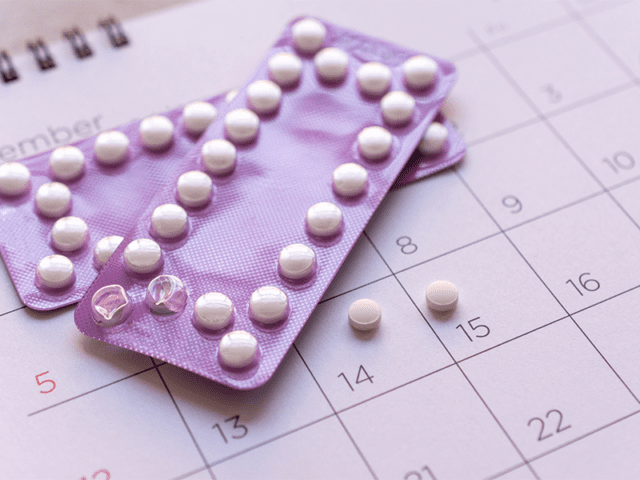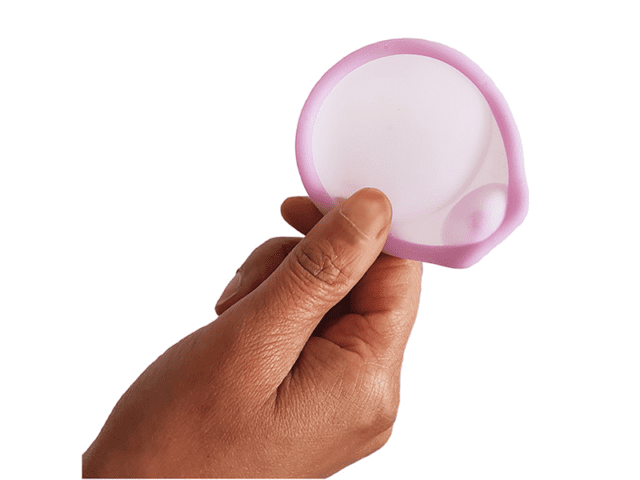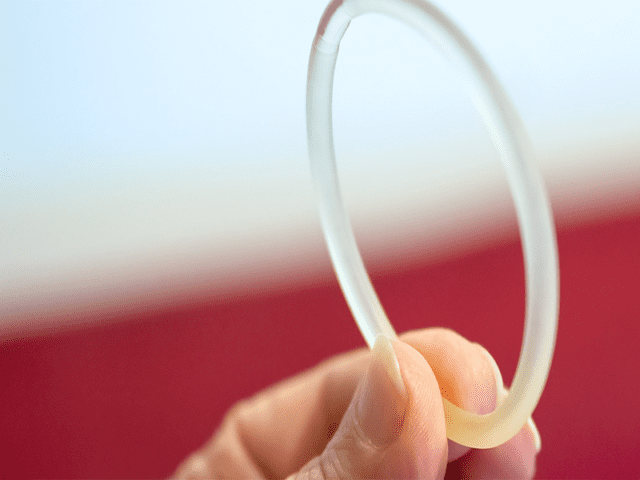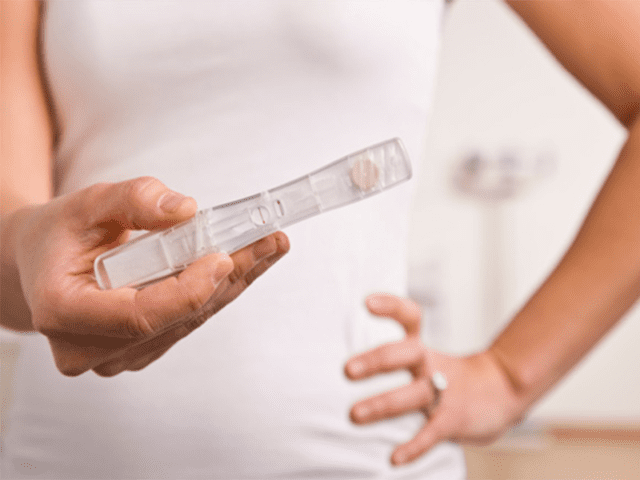Just as a planned pregnancy can turn your world upside down for the better, an unwanted one can do the same for the worse. With myths like ‘sex without precautions feels better’, the chances of unwanted pregnancies are on the rise. Things have changed and due to sex education and growing awareness, responsible couples have adopted a variety of birth control measures.
For those wondering how to prevent pregnancy, there are plenty of options to choose from. Taking the right precautions to avoid pregnancy is a must and such precautions also help the transmission of STIs.
Precautions & Communication

Here are some important tips about precautions to talk about with your partner. Such conversations help avoid misunderstandings, unwanted pregnancy and STIs and reach maximum pleasure with ease.
- Communicating with your partner about whether you wish you use birth control or not and which one you prefer is vital.
- Some people are allergic to latex, making it impossible for them to use condoms.
- If you do use a condom, make sure you know how to wear it and dispose of it carefully.
- Emergency contraceptive pills are meant for emergencies only.
- In the case of oral contraceptives, consult your gynaecologist for advice and guidance.
- Remember to urinate before and after sexual intercourse.
5 Common Birth Control Options
How to prevent pregnancy is a topic that needs to be discussed. With a population of 135 crores and counting, conversations around birth control methods are vital in India. But several women all over the country lack basic information about birth control, family planning and the various methods available.
1. Condoms

Male as well as female condoms, help prevent unwanted pregnancies along with STIs. They are easily available at your nearest pharmacy and relatively cost a lot less than other methods. They come in a variety of options to enhance sexual satisfaction. Condoms certainly are the answer to how to avoid unwanted pregnancy.
Pros:
- Condoms don’t need a prescription
- They are easy to use
- Condoms don’t affect the fertility of the person
- It is a strong way to prevent STIs
- They have a high success rate in preventing pregnancies
Cons:
- People allergic to latex can’t use regular condoms
- When using condoms, you can’t use them with oil-based lubricants, only water-based ones
- There are chances that the condom may tear off due to excessive friction during intercourse
2. Birth Control Pills (Oral Contraception)

BCPs are a great option for how to avoid unwanted pregnancy. There are 2 basic types of BCPs; combination pills that contain both estrogen and progestin and progestin pills that only contain progestin.
Pros:
- They make your menstrual cycle lighter, more regular and more manageable
- They are easier to use than any other contraceptive methods
- They do not affect your fertility
- They also help in reducing acne
- They lower the risk of developing ovarian cancer, anaemia, ectopic pregnancy, endometrial cancer, and pelvic inflammatory disease
Cons:
- Nausea and vomiting
- Headache
- Breast tenderness
- Weight gain
- Irregular bleeding
- Mood swings
- Dark spotty pigmentation of the skin
- Decreased sex drive
- A single miss can result in increased chances of pregnancy
- No protection against sexually transmitted diseases
3. IUD

This T-shaped intrauterine device is inserted into the uterus and is an effective way of avoiding an unplanned pregnancy. Hormonal IUDs & Copper IUDs are 2 types available. The hormonal IUD releases levonorgestrel, a form of the hormone progestin and is slightly more effective than the copper IUD. Hormonal IUDs prevent pregnancy for 3 to 5 years. The copper IUD is most commonly used and can stay in place for up to 10 years.
Pros:
- The hormonal IUD may reduce menstrual cramps and bleeding
- It may prevent endometrial hyperplasia or endometrial cancer
- It may effectively relieve endometriosis
- It also reduces the risk of ectopic pregnancy
- Also, it does not cause weight gain
Cons:
- Copper IUD may increase menstrual bleeding or cramps
- Though perforation is rare, it may occur during insertion
- About 2 to 10 out of 100 IUDs are pushed out (expelled) from the uterus into the vagina during the first year. When an IUD has been expelled, you are no longer protected against pregnancy
- There is a high cost of insertion and only a doctor can remove it
4. Diaphragm Birth Control

A flexible cup inserted in the vagina to block sperm from entering the uterus is called a diaphragm. This is a barrier method of birth control and is moderately effective.
Pros:
- It does not contain hormones
- The diaphragm is inserted before sex and does not interrupt foreplay
- It usually cannot be felt by either partner
Cons:
- A diaphragm does not offer protection against STIs
- Use of the diaphragm can cause vaginal irritation which increases the risk of STI
- It is not as effective in preventing pregnancy as compared to other birth control methods
- It must be used every time you have sex
- It requires a visit to your health care provider for fitting and prescription
- You cannot use it when on your periods
5. Birth Control Ring

The birth control ring is a safe and convenient birth control method that works really well if you always use it correctly. It is a soft, flexible ring that has to be inserted into the vagina that prevents your ovaries from releasing eggs. Since it is effective for 3 weeks, you don’t need to change it every day.
Pros:
- It helps in preventing acne
- It also prevents cysts in the breasts and ovaries
- It reduces the risk of endometrial and ovarian cancers
- Serious infections in the ovaries, fallopian tubes, and uterus are also prevented
- It also helps in reducing PMS (premenstrual syndrome)
Cons:
- It may expose you to vaginal infections and irritation
- You may also experience vaginal itching or discharge
- There are chances that you may experience a frequent headache
- It can cause nausea and vomiting, bloating and headaches
- It may also cause decreased sex drive, hair loss, stomach cramps and breast pain
When we talk about the safest permanent birth control method, Laparoscopic Tubal Ligation is a safe and permanent way of birth control method for women. For men, Vasectomy is a way for permanent birth control. – Dr Sushma Tomar, Infertility Specialist and Endoscopic Surgeon at Fortis Hospital, Kalyan
The Debate About ‘Pulling Out’

While many may debate about how to stop pregnancy naturally, there is no definitive scientific proof of it. The closest answer we have for how to prevent pregnancy without contraceptives is the method of pulling out in time.
Pulling out is also known as coitus interruptus, interrupting sex or withdrawal. It means stopping the act of sexual intercourse to ejaculate outside externally. This is done as one of the precautions to avoid pregnancy. While sex educators may fail to mention this, newer studies show that it is, in fact, effective. Thus showcasing that it can be one of the solutions to the question, of how to prevent pregnancy naturally.
Pulling out can work better than the pill or a condom as one of the most effective birth control measures. Withdrawal, even if used imperfectly, is 5 times more effective than doing nothing at all. There are ways to do it correctly and help you with how to prevent pregnancy naturally.
How To Prevent Pregnancy Naturally?
How to prevent pregnancy without contraceptives is one of the most common questions raised by sexually active people. Here are some natural solutions to how to avoid pregnancy at home.
1. Track Your Cycle

It is vital to understand your body and keep track of your menstrual cycle. There are plenty of apps available to help you do it easily and effectively. Make sure you track your period for 6-8 months to derive conclusive results. With the technology available via apps, all you need to do is enter data about your menstrual cycle and it calculates the rest. Know how to stop pregnancy naturally by tracking your menstrual cycle.
2. Evaluate Your Fertility

Since conception is largely based on when you ovulate and your fertility cycle, it is important to analyse and study this pattern. Avoiding sex during your fertility period can help avoid an unwanted pregnancy. A menstrual cycle tracking app can help you find out your ovulation period and indicate the most fertile days as well. This is one of the most effective ways to answer how to avoid pregnancy at home.
3. Monitor Your Basal Temperature

Basal temperature is the lowest temperature of your body at rest. During ovulation, your body temperature is slightly higher which is an indication of your fertility period. To avoid unwanted pregnancy, chart your basal body temperature. Use the data to either abstain from sex during those days or use protection.
4. Check Your Cervical Mucus

Though this is a tricky method, it can deliver results when done properly. Cervical mucus is the vaginal discharge that changes several times during the month. It is an indicator of your fertility. Keeping a tab on this by swapping a cotton ball after your period can help you avoid an unwanted pregnancy.
10 Key Takeaways

- There are many contraceptive options to help avoid pregnancy, ranging from barrier methods to hormonal pills, patches, and IUDs.
- Different methods may work better for different people, and a person may try several options before working out the contraceptive strategies that work for them.
- If you do plan on choosing birth control pills, make sure you take them at the same time every day.
- Pre-cum can contain sperm, hence it is advisable to not touch the vagina after touching the penis.
- Refrain from bringing exposed genitals in close contact with your partner to avoid fertilisation of the egg.
- Make sure to only use emergency contraceptive pills in case of a broken condom or a pissed BCP.
- Remember that male and female condoms are the only types of contraception that prevent STIs.
- Choose a birth control method that works best for you as methods of contraception vary in terms of their effectiveness.
- Remember, you can only practise safer sex with these methods and there is no failsafe method to prevent unwanted pregnancies.
- People who are sexually active should speak with their doctor about the available options, so they can choose the method that is best for them.
FAQs – Frequently Asked Questions
Q. What should be eaten to avoid pregnancy?
A. Using a doctor-recommended birth control method is the best way to avoid pregnancy. Some foods can help answer the question of how to stop pregnancy naturally. There are some debatable natural methods of preventing pregnancies such as eating the following foods;
- Papaya (Papita)
- Ginger (Adrakh)
- Apricot (Khubani)
- Dried Figs (Anjeer)
- Cinnamon (Dalchini)
- Juniper Berries (Kala Jamun)
- Asafoetida (Hing)
- Parsley (Ajamod)
Q. How many days after a period can you not get pregnant?
A. If your menstrual cycle lasts 28 days, days 9 to 14 are your most fertile days. If you avoid these days, the chances of you getting pregnant are comparatively lower on the rest of the days. Remember, there are no days with a 0% chance of pregnancy and hence it is advisable to always use contraception.
Q. What is the name of emergency contraceptive pills available in India?
A. There are plenty of options available like i-Pill, Unwanted 72, Preventol and many more. These pills contain higher doses of hormones like oestrogen, progestin, or both, that are found in regular oral contraceptive pills. It is advisable to only use this method in an emergency.

